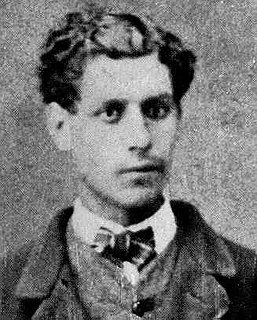A Quote by Horace Mann
The false man is more false to himself than to any one else. He may despoil others, but himself is the chief loser. The world's scorn he might sometimes forget, but the knowledge of his own perfidy is undying.
Related Quotes
When it seems that God shows us the faults of others, keep on the safer side-it may be that your judgment is false. On your lips let silence abide. And any vice that you may ascribe to others, ascribe at once to them and yourself, in true humility. If that vice really exists in a person, he will correct himself better, seeing himself so gently understood, and will say of his own accord the thing that you would have said to him.
Extreme narcissists exaggerate their achievements and talents, and so Trump has spent his life building up a false image of himself - not just for others, but for himself, to protect his deeply fragile ego. He lies endlessly, not just in the way sociopaths do, which is to con others, but also to delude himself.
Man—every man—is an end in himself, not a means to the ends of others; he must live for his own sake, neither sacrificing himself to others nor sacrificing others to himself; he must work for his rational self-interest, with the achievement of his own happiness as the highest moral purpose of his life.
Ownership by delegation is a contradiction in terms. When men say, for instance (by a false metaphor), that each member of the public should feel himself an owner of public property-such as a Town Park-and should therefore respect it as his own, they are saying something which all our experience proves to be completely false. No man feels of public property that it is his own; no man will treat it with the care of the affection of a thing which is his own.
The wise man does nothing but what can be done openly and without falseness, nor does he do anything whereby he may involve himself in any wrong-doing, even where he may escape notice. For he is guilty in his own eyes before being so in the eyes of others; and the publicity of his crime does not bring him more shame than his own consciousness of it.
The man who lies to himself can be more easily offended than anyone else. You know it is sometimes very pleasant to take offense, isn't it? A man may know that nobody has insulted him, but that he has invented the insult for himself, has lied and exaggerated to make it picturesque, has caught at a word and made a mountain out of a molehill--he knows that himself, yet he will be the first to take offense, and will revel in his resentment till he feels great pleasure in it.
A man who lies to himself, and believes his own lies becomes unable to recognize truth, either in himself or in anyone else, and he ends up losing respect for himself and for others. When he has no respect for anyone, he can no longer love, and, in order to divert himself, having no love in him, he yields to his impulses, indulges in the lowest forms of pleasure, and behaves in the end like an animal. And it all comes from lying - lying to others and to yourself.



































